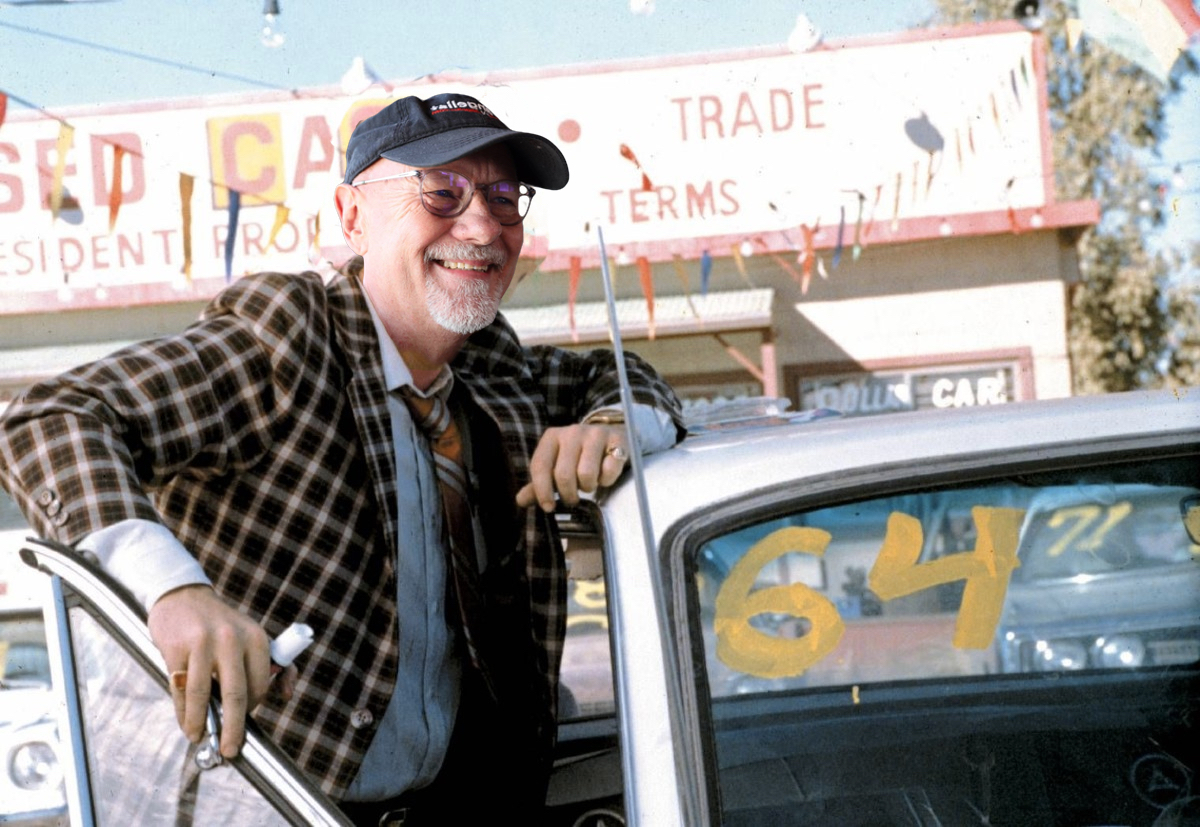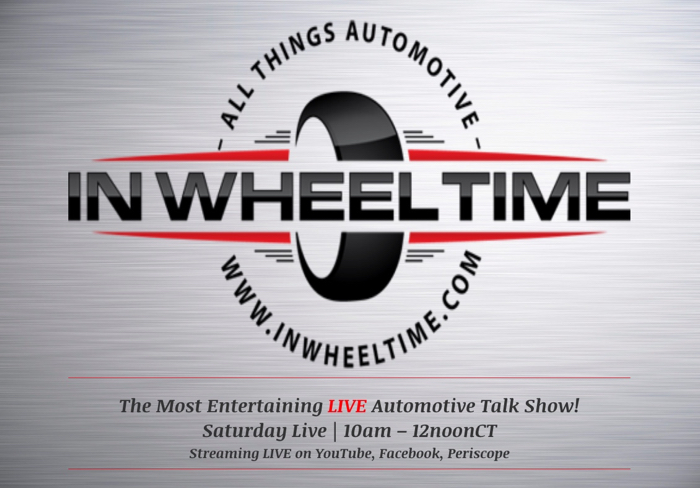Dealers: As this article’s title states, this is tough love. I have immense respect for the talented and dedicated people in the dealership world. I have worked with many of you. Then again, I have also seen salespeople high five one another and laugh about how they just cheated a buyer. I’ve seen dealerships price in-demand vehicles $10K or more over MSRP and later wonder why that customer doesn’t do business with the dealer anymore. It’s time for a course-change in your world. If you’re too sensitive to take honest and constructive criticism, you should probably stop reading this now. However, if you want to survive the changes, you’ll find this article useful.
By the way, I fully realize this article may so alienate the OEMs and dealers that I’ll never teach another salesperson how to sell EVs, but that’s okay. I’m semi-retired and actually enjoy the work I do on the consumer side of the EV world, as well. I’m trying to help, but I’m exhausted by your unwillingness to see the shortcomings of your current business model as it relates to EV sales. Honestly, I feel like I’m dragging a brontosaurus away from certain extinction while it just lies there, grazing, as I drag.
This article was prompted by an article written by Alexa St. John, published on Insider. It’s a short article and worth the read. By the way, my friend Nigel Zeid was quoted in the article and I was interviewed as part of the Alexa’s research. Nigel, I know our mission is exhausting, but keep up the good work, bud!
A little background, before my rant begins: After getting our first two plug-in vehicles, I changed careers to sell cars for a living, in Big Oil Texas. 35% of my sales (at a GM dealership, mind you), during my six years in the business, were plug-in vehicles (both BEV & PHEV). The average, nationwide, is less than 2% of vehicle sales are plug-ins. I am also a board member and Director of Dealer Outreach with the Texas Electric Transportation Resources Alliance, a non-profit that works with the state legislature on EV policy, infrastructure rollout and consumer education. I’ve done the job and I’ve walked the walk.
I retired from auto sales two years ago, to help dealerships and OEMs learn how to successfully (i.e. profitably and quickly) sell EVs and to educate the public on the advantages of driving electrically.
Then COVID-19.
Then the chip shortage.
Okay, I don’t have the best timing…
Over the last ten years, I have read (and written) so many articles, like the one in Insider, stating that dealers want to sell EVs but can’t seem figure out how to become successful at it. Here’s one from 2014. Certainly, I have seen these proclamations of desire to sell and the consternation caused by the lack of success. I have also spoken with many vendors, who sell EV-related products through dealerships, about meetings that suddenly ended, when the dealership management discovered it was about EV-related products or services. Many dealers want to appear to be forward-looking, so they provide lip service, rather than customer service, when being interviewed by the media. The articles then move on to list the challenges and solutions to the problem(s). In fact, just yesterday, I posted about a YouTube video addressing this issue. In that video a few interesting statistics popped up: 1) 87% of people polled dislike some part of the dealership car buying experience, 2) 60% of Americans feel taken advantage of when they visit a car dealership, 3) If OEMs sold directly to the public, cutting out the dealers could reduce the price of a new car by 10%, and 4) Auto salespeople are ranked, by the public, as being as dishonest as lawyers, journalists or politicians. Ever heard of Honey Badger? Carvana? Vroom?
Then… nothing changes.
Dealers, OEMs and Auto Dealer Associations keep doing things the same old way. Complaints about the EV buyer experience are rampant (at traditional dealerships) in news articles and social media.
Transportation is changing, dramatically, right now. Dealerships and OEMs seem to have not learned the “Lesson of the iPhone.” Remember mobile phones from Blackberry? Nokia? Ericsson? Motorola? If you don’t want people to be saying, “Remember car dealerships?” it is time to stop resting on your… laurels and start providing the value-add that justifies the 10% cost increase, on which your business lives. The public needs you to step up and actually be the “sales consultants” your business cards claim you are, rather than just order takers. Order takers get replaced by automation (see McDonalds, ATMs, Tesla, Rivian, Lucid, Polestar, etc.) Think you or your OEM are “too big to fail?” See the iPhone lesson, mentioned above.
On to the article and the quotes within it, that have my dander up this morning.
“General Motors’ auto dealers are tired of being told they can’t sell electric cars.” Well bless your heart*, GM dealers. Why, you’ve only had 11 years to get ready, since the Chevy Volt started arriving in your showrooms. You’re “tired of” your customers telling you you’re blowing your opportunity? In this case, the customer is right. If they say you’re incompetent, it’s time to seriously evaluate your performance rather than just be tired of their feedback. If you don’t understand how this can be, when your customer reviews for non-EV sales are wonderful, then you do not understand the business model you’ve built and the lack of control you have over it.
*Southern phrase. Google it.
“GM dealers across the country told Insider they are generally optimistic about the future of their businesses and that they’re happy to sell cars no matter their power source.” Really? More than 1/3 of Cadillac dealers decided to accept a buy-out rather than sell EVs exclusively.
“We just don’t know what we don’t know yet.” and “We know that this is coming, and we would rather be ahead of the game than behind the eight ball.” So what are you doing about it? How are you learning?
“So many of the questions aren’t even about the car.” As I’ve been saying for years now, selling an EV is different. Buyers have been buying internal combustion engine (ICE) vehicles for over a century now. They don’t need to ask the “lifestyle questions” posed by EV buyers. In fact, ICE buyers really don’t need your salespeople. If you had a kiosk or website that could search inventory, show the price and complete the sale, many of your clients would enjoy the process much more. The OEMs don’t have the answers to the lifestyle questions either because the answers vary by region and are specific to yourmarket, not theirs. How much does it cost to “fill up” and EV? How does MPGe relate to MPG in your area? How about local climate? Is it too hot or cold in your area for an EV to be the right choice? Where can I charge it? What are the local government and/or business incentives available for an EV purchase? Are there local electricians who can check my house for EV charging or for charger installation?
Most prospective EV buyers need the answers to these questions, before they’ll be comfortable buying. When I was shopping for my first plug-in vehicle, I could not get these answers. Fortunately, I’m an early adopter by nature, so I surfed the web, got the answers I could and took the plunge. We were so happy with the outcome, we bought our second one less than sixty days later. Yes, your customers will be that happy as well, when they get their first EV, IF you can answer their questions truthfully and if you could answer these questions, they’ll refer all their friends to your dealership.
When a pickup buyer appears on your lot, your salesperson asks:
- Four- or two-wheel drive?
- Long or short bed?
- Crew cab, double cab or extended cab?
- Gasoline or diesel?
- Towing anything?
- Leather or cloth?
- Paint color?
- Done.
Perfect for a kiosk. No sales “consultant” required.
“Maintenance is going to completely change for an EV versus an engine vehicle.“”When you first look at it from the outside looking in, it doesn’t look bright.” This is true. EVs require much less maintenance. However, one of the things dealers don’t understand is that EV owners don’t want anyone touching their vehicle, other than the OEM’s representatives (i.e. the dealers). Owner loyalty to dealer Service departments is off the scale. Many of us won’t even buy tires from someone else, won’t go to non-dealer body shops, etc. By the way, the “scheduled maintenance” chart in your EV owner’s manuals are a great selling tool. Any chance you’ve got one blown up to poster size so clients see this? What about using your Service lounge to help move people to an EV? If the customers are sitting there, waiting for their oil change to be completed, why not have a short, informative EV video play on the TVs occasionally?
Another revenue opportunity for dealers would be having their Parts departments carry EV accessories and “bling.” EV owners are proud of the change they’ve made, They WANT to advertise your brand/dealership. They want a one-stop shop for their EV needs, which includes Level 2 chargers, charge plug adapters (to charge at chargers not equipped to handle your vehicles’ charge port), home connection devices like SplitVolt, EV conversion kits to convert ICE vehicles to EVs (GM has already announced they’re going to make these kits available.), t-shirts, caps, windbreakers, windshield sun screens, coffee mugs, ice chests and on and on…
“The biggest pain point is putting in the chargers…” Yes, you’ll have to install chargers, but only a few (maybe just one) have to be the more expensive DC fast chargers. Level 2 (240V) chargers will suffice for 95%+ of your dealership’s needs. Even the 110V chargers that come with the EV will handle a huge portion of your dealership’s charging needs, if you locate 110V outlets where the cars are displayed.
“We’re talking every single day: How do we get ready for this future? We’re developing that plan so when this does fully hit, we are prepared.” This isn’t the future. It’s happening right now. I hope you’re asking these questions of someone knowledgeable about the EV lifestyle. Otherwise, it’s the blind leading the blind.
There’s so much more to discuss to prepare you for successful EV sales. You know how to find me.


